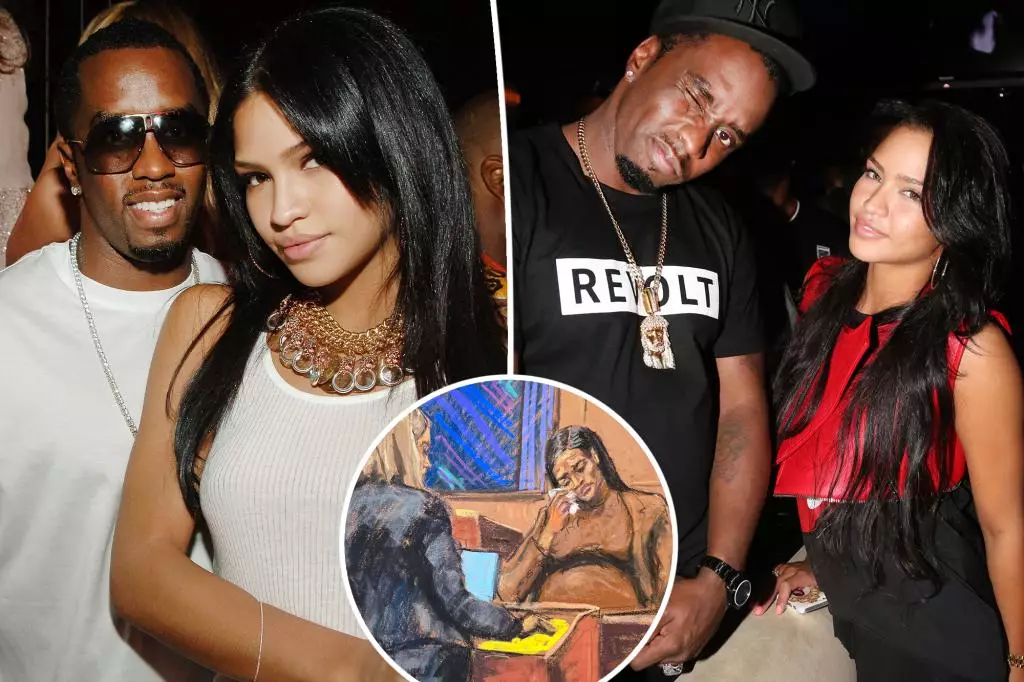The recent public exposure of Sean “Diddy” Combs and Cassie Ventura’s intimate text messages has sent ripples through media and public discourse alike. Initially unveiled as evidence during a high-profile sex-trafficking trial, these messages have morphed into a powerful catalyst for conversations surrounding consent, abuse, and the complexities of celebrity relationships. While some excerpts appear playful or benign, others are starkly unsettling and reveal troubling dynamics.
The text messages, spanning 162 pages, detail the contours of an intensely personal relationship marred by elements of manipulation and emotional turbulence. Instances where Ventura shares her excitement over provocative encounters and salacious activities juxtaposed against her accusations of being treated as a “sidepiece” raise questions about agency and autonomy, even within consensual relationships. These communications peel back layers on a relationship dynamic that many were previously unversed in, illustrating the dissonance between public perceptions of celebrity romance and the often stark realities that underpin them.
Power Dynamics and Language
The language contained within these messages serves as an illuminating lens into the power dynamics that characterized Combs and Ventura’s relationship. For instance, statements like Combs’ desire to “eat that p—y” are provocative, suggesting a raw, visceral connection. Yet, this louche language contrasts sharply with the emotional undercurrents running through Ventura’s discontent—a dichotomy that hints at deeper issues of control and emotional distress. The intimate yet troubling exchanges bring forth an unsettling reality: beneath the surface allure of celebrity culture lies a maze of manipulation and emotional volatility.
Messages where Ventura expresses eagerness for encounters, juxtaposed with her claims of feeling dismissively treated, cast doubt on the stability of her emotional state during their time together. This contradiction begs the question: In an environment rife with parties and physical intimacy, how does one maintain a sense of self-worth? At what point does playful banter transition into emotional exploitation? Such questions resonate far beyond the celebrity sphere, echoing the struggles many face in navigating similar personal entanglements.
Reactions from the Periphery
The public’s reaction to these revelations is as multifaceted as the relationship itself. While many sympathize with Ventura’s past experiences and her ultimate decision to break free from a damaging cycle—her husband Alex Fine’s passionate statement underscored this sense of resilience—others remain fixated on the sensational aspects of the texts. The media’s scrutiny often hones in on the explicit nature of the messages, overshadowing the significant narrative of survival against adversity. In doing so, it risks commodifying a deeply personal and painful chapter of Ventura’s life.
Fine’s poignant declaration of pride in his wife’s bravery illustrates an important narrative shift: a move from victimhood to empowerment. It accentuates a growing recognition within society that the struggles of women—especially those tied to fame or public scrutiny—should not only be acknowledged but celebrated as acts of resolute strength. Fine’s message brilliantly encapsulated the complexity of love and support against a backdrop of trauma, subtly urging society to redefine perceptions of strength in the face of adversity.
Charting New Conversations
The intense scrutiny surrounding the text messages forces a broader conversation on long-standing issues surrounding celebrity culture, abuse, and the ethical responsibilities of media. With Combs facing grave allegations, including the potential for life sentences, the trial stands as a flashpoint not just for his future, but for societal attitudes toward accountability within relationships. The messages, while at times titillating, should ideally serve a more substantial purpose: prompting discourse on the blurred lines of affection and coercion that pervade many intimate relationships today.
Ultimately, the highly publicized exchange between Diddy and Cassie reflects more than just a troubling individual narrative; it raises critical questions about societal perceptions of love, power, and autonomy. As the public engages in conversations inspired by these leaked messages, an opportunity presents itself not only to address past grievances but also to foster a culture of respect and understanding in relationships everywhere. In a world where personal matters often become public spectacles, the depth of a message can reverberate far beyond its initial context, demanding a thoughtful and nuanced analysis of human interaction.


Leave a Reply